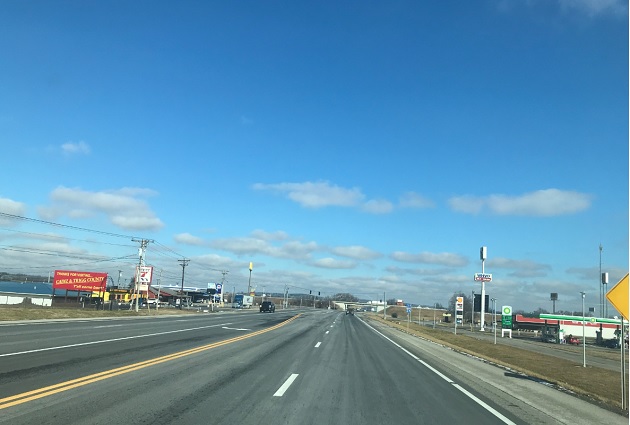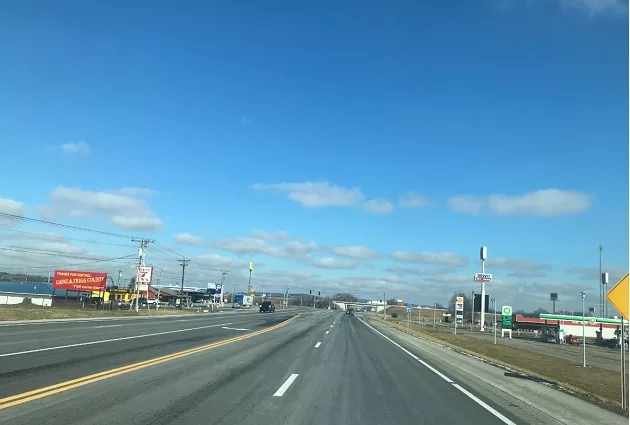
In a recent visit with the Cadiz Rotary Club, Kentucky Transportation Cabinet District 1 Chief Engineer Kyle Poat opined on several concerns of Trigg County interest.
Among them: the R-cut at the intersection of US 68/80 and the South Road, the growing dangers of the Broadbent Square intersection near I-24, the region’s Amish and other religious affiliations requiring horse & buggy use on main thoroughfares, and what the gas tax means for KYTC.
District 1 currently has seven of these “R-cut” locations across west Kentucky, in which the intersection has been removed and replaced with interloping turns designed to encourage speed reduction and remove large threats for deadly head-on and T-bone collisions.
Poat said that part of 68/80 is feeling “safer.”
While that data is soon to be returned, Poat said preliminary reports indicate that all seven locations have had considerable success in accident prevention.
Much like the Exit 4 interchange revamp in Paducah, Poat said pre-project discussions in Trigg County trended more negatively, and those notions have changed.
In any four-way intersection, Poat noted that there are 32 points of serious conflict, in which a pair of drivers — or more — can easily come face-to-face with danger.
“R-cuts” slice that in half.
While Broadbent Square is likely too wide for this type of reconstruction, Poat did say that this area is approaching certain metrics necessary for changes. High rates of speed, major traffic congestion and spikes in accidents have been factors.
Turning to horse & buggy road companions, one of the biggest changes enforced in the last 25 years is the required installation of reflective measures — including lights or tape — to buggies, which helps motorists identify these slower-moving mechanisms from a distance.
But horse hooves, unfortunately, have played a role the degradation of regional asphalt. The clip-clop may be aesthetically pleasing to hear, but it pummels pavement faster than one would think.
Poat said this has been an ongoing concern for years. The Amish and certain Mennonite sects, quick to help local economies, can only travel by one means. And their only way to and from commerce is through regional roads and highways.
Poat added that from the KYTC’s standpoint, any road rules regarding Amish and Mennonite travel must come at the city or county level.
As for that pesky gas tax? Poat said even the slightest changes in either direction can mean the difference in certain projects getting funded now, versus getting the can kicked down the road.
Governor Andy Beshear and his administration froze the gas tax in place prior to this summer, in hopes of alleviating costs at the pump, and a trigger for a 2-cent increase was throttled.






